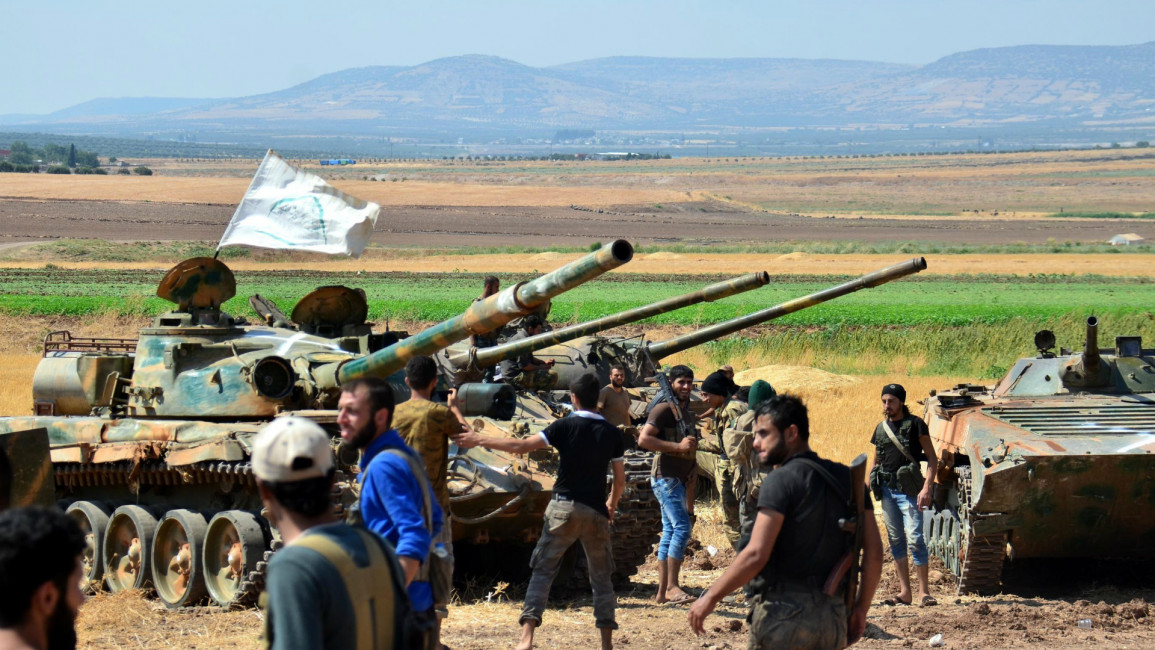Medical charity reports suggest IS chemical weapon use
Two adults, a three-year-old girl and a five-day-old baby girl were treated at an MSF-run hospital in Aleppo province, northern Syria, last Friday, the charity said in a statement.
They arrived at MSF’s hospital an hour after the attack, suffering from breathing difficulties, inflamed skin, red eyes and conjunctivitis. Within three hours they developed blisters and their breathing difficulties worsened, the statement said.
MSF staff treated them and gave them oxygen before transferring them to another hospital for specialised treatment.
The family said a mortar shell hit their home last Friday evening, MSF said. After the explosion, a yellow gas filled their living room.
Following shelling on civilian areas in Maree, northern Aleppo, on Friday, the Syrian-American Medical Society (SAMS) said that one of their hospitals received more than 50 civilian patients exhibiting symptoms of chemical exposure.
According to SAMS, around 30 civilians developed skin blisters, with doctors identifying the agent responsible as mustard gas.
"If it was a chemical attack, it is impossible for us to ascertain who was responsible," Pablo Marco, MSF's programme manager in Syria, told Reuters.
Although the perpetrators of the alleged attack have not been confirmed, local sources suspect the Islamic State group.
"At least half of the 50 mortar and artillery shells fired by ISIS [another name for the IS group] contained poisonous mustard gas," Hussein Nasir, a spokesman for a Syrian rebel group, the Shami Front, told the New York Times.
"The shells landed randomly on different parts of the city resulting in many injuries," he said. "Some bad odour filled the air, and those who were exposed showed symptoms of suffocation, skin irritation and swelling."
| The shells landed randomly on different parts of the city resulting in many injuries |
Maree is on the front line of fighting between IS and other armed opposition groups, and SAMS says that its hospital in the area had witnessed increased levels of civilian injuries and mass displacement in recent months.
The town, 20 km (12 miles) south of the border with Turkey, had been under intense bombardment by mortars and artillery for a week, MSF said.
Similar reports of chemical weapons use by IS have surfaced in recent months, including in connection with an attack by Islamic State militants in neighbouring Iraq.
Last week, a senior US military officer said that preliminary tests show traces of the chemical agent sulfur mustard on mortars that Islamic State group militants used to attack Kurdish forces in Iraq.
US officials have been looking into reports that IS used the chemical weapon mustard gas in the attack on August 11 in Makhmour.
Diplomatic efforts by the US and Russia following a chemical weapons attack in Syria in 2013 was thought to have led to the removal or destruction of the Syrian government's chemical weapons stockpiles.
However questions remain about whether some of those chemicals escaped destruction - or if militants have been able to obtain them in other ways.
US officials have expressed concerns about the possibility that IS would locate and use chemical weapons in its campaign to take control of more territory across Iraq and Syria.
The US and coalition partners are supporting Iraqi and Kurdish forces on the ground in Iraq, largely through airstrikes and a training and equipment programme.
However, there have been discussions among top military and defence leaders about using additional US forces in Iraq, possibly to help direct airstrikes or to embed with Iraqi units to better train and advise them.
The use of chemical weapons by IS adds another element of risk to troops and could further complicate the debate.
International humanitarian law forbids the use of mustard gas through the Geneva Convention and Chemical Weapons Convention.



